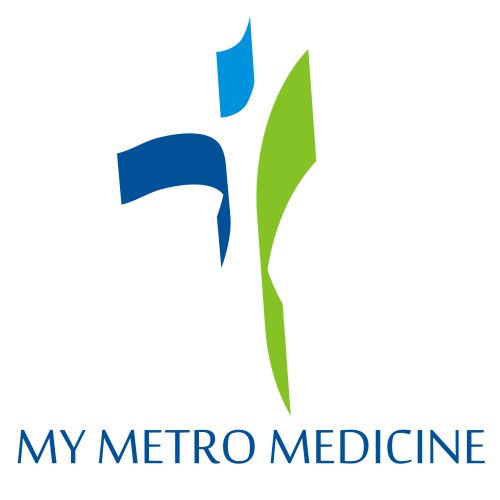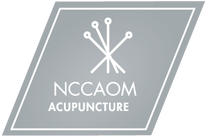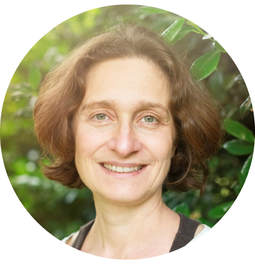 Author: Asya Haikin, C-IAYT Author: Asya Haikin, C-IAYT
Today over fifteen million Americans regularly practice yoga. It is easy to find a yoga class to fit your needs and your schedule. Why go an extra mile and see a yoga therapist? Who might benefit from that?
Yoga therapy is the application of yogic tools such as physical postures, breathing, chanting and meditation to the specific needs of an individual. In our minds yoga is firmly connected to the class format, but a yoga class is, in fact, a fairly recent phenomenon, dating back to the early 20th century. During that time the yoga of the physical postures (asanas) was gaining popularity in India, partly under the influence of emerging western interest in physical fitness. From India, Yoga was transported to the West, where the class format became the most popular way of practicing yoga.
Before yoga classes gained popularity, yoga was often transmitted one-on-one, from teacher to student. The practice was adapted to the individual, made to address whatever issues the student was dealing with. With most yoga classes around nowadays being highly athletic and physically demanding, there is a movement towards making yoga more accessible. Yoga therapy is part of this movement to make yoga responsive to the needs of the individual, and bring it into the field of integrative healthcare. Here are some of the reasons you may want to see a yoga therapist:
Listen to our "Ask The Expert" Interview with Asya Haikin
Even if you are just dealing with everyday stresses and with life cycle events like pregnancy, or natural effects of aging, yoga therapy can be a great way to support yourself through those life transitions. To find a qualified yoga therapist near you go to: www.yogatherapy.health
About the Author
Asya Haikin is the Owner of Peaceful Mind Yoga Therapy in Falls Church, Virginia. She is a Certified Yoga Therapist working with people with persistent pain to improve wellbeing and quality of life. Her mission is to make yoga safe and accessible, and to raise awareness about the benefits of yoga therapy. Asya has been using mindful movement, breath and body awareness to help individuals move beyond pain for over fifteen years. She has a private yoga therapy practice in Falls Church, VA, and also teaches several public yoga classes in Arlington and Falls Church. Asya is also a Reiki Master, a Tibetan Tones (vibrational sound healing) practitioner, and has an MA from University of Pennsylvania. To learn more about Asya, visit her website at www.peacefulmindyogatherapy.com
6 Comments
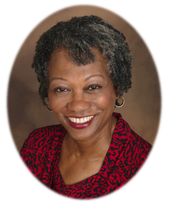 Written by Joanne Creary (Owner of Well Woman Coaching) Written by Joanne Creary (Owner of Well Woman Coaching)
We complain often that we’re living in an age of information overload. It seems everywhere you look there are experts telling you how to improve yourself—Lose weight! Eat better! Exercise more! Magazines, newspapers, and TV programming are loaded with ads pushing the next best thing to help you sleep better, earn more, get the perfect job, choose the coolest clothes. Each day a new self-help book appears on the must-read list, claiming to have a foolproof method for clearing out clutter, finding the perfect mate, getting the raise you deserve. Oh, did I mention, there’s an app to help you track your cardio workouts, count your calories, budget your money wisely?
Yet, four out of five of us continue to live with levels of stress that affect our physical health and emotional well-being. Why do you suppose that is? The truth is, old, harmful habits are hard to break, and it takes time to replace them with habits that are helpful. Not many of us can go it alone successfully. That’s where a life coach can help. Five Ways a Life Coach Can Help You Achieve Lasting Change Identifying what needs to change. Most of us have a feeling that our lives can be more satisfying, but we sometimes find it hard to decide why that is, or what we can do about it. A life coach listens closely to hear what’s going on with you, asks questions to help you explore your feelings, and gives you honest feedback. Casting a vision. It’s easier to make the decision to change, and to actually take action, if you’re clear about where you want to go. A life coach helps you explore your values, creates a safe space where you can imagine what’s possible, and encourages you to dream with no judgment. Formulating a plan. It’s said a dream isn’t a goal until you make a workable plan to make it happen. That’s where a life coach comes in, to help you “put the pedal to the metal,” by working with you to identify steps you can take to make your dream a reality, and challenging you to dig deeper for answers instead of being satisfied with the obvious. Helping you stick to it. Change can make us uncomfortable, even when we desire it, which is why it’s so hard to stay the course. A life coach will hold you accountable for doing what you say, cheer you on as you take baby steps in the right direction, and challenge you to keep going when you falter. Dealing with what gets in the way. Sometimes we’re our own worst enemy, able to devise clever ways to sabotage our own best intentions, and sometimes the people closest to us become uncomfortable when we try to make changes. Your life coach knows this, and will help you to avoid self-sabotage, overcome obstacles that others might put in your path, and keep you moving toward the goal of having the life you want. The experts are right—you can have a life that’s happier, more meaningful, and more satisfying! And a life coach can help you make it a reality. Listen to the Podcast of Joanne's ASK THE EXPERT InterviewWatch Joanne's LIVE Interview Here!
About the Author
Joanne Creary is the Owner of Well Woman Coaching based out of Northern Virginia. She is an associate member of the International Coach Federation, holds a Master's Degree in Counseling Psychology, and is a member of the Christian Coaches Network. As a professional life coach, Joanne uses a variety of coaching techniques tailored to meet your unique needs, to help you identify your calling and the steps you can take right now to live with passion and purpose. Contact Joanne today to schedule your first coaching session! Our mentally and emotionally-induced unnatural resistance to adjust our basic routines together with the seasons causes a clash between our internal environment (our physiology) and the external environment. Each morning for the past week, I have found myself to be a bit more tired than usual. There were nights when I went to bed a little late and nights I went to bed early, but it didn't make a difference. Some mornings I even felt a little tickle in my throat and others I noticed a slightly runny nose and little extra saliva in my mouth. Too much detail? Well there's a reason. When the seasons change, our bodies do the same. When the physical environment, and even the emotional environment, begin to change around us, our bodies, being the pros they are, automatically make an effort to change with them. If they didn't, we would enter an unfortunate state of dis-ease. Our mentally and emotionally-induced unnatural resistance to adjust our basic routines together with the seasons causes a clash between our internal environment (our physiology) and the external environment. This is the reason I personally prescribe the art and exercise of Tai Chi during these times of the year. Although there are numerous styles of this exercise, its overall gentle movements and calming nature provide one important element in this time of seasonal transition; Movement. A consistent Tai Chi practice during any seasonal transition, especially from summer to fall, will allow for a healthy experience of movement from one season to the next, no matter the type of climate. Whether you live in the northern or southern hemispheres, on the equator, or in Antarctica, there is always a transition in the environment, which has an inevitable effect on your body's physiology.
The main reason why practicing during the summer to fall transition is so important is due to the overall nature of the seasons. What I mean is, during summer exists the peak temperatures of the year in the external environment, which create physiological changes that lead to the release of heat (sweating) from our bodies. Or it can lead to something we refer to as warm diseases (think heat exhaustion) because our bodies are unable to release the heat inside of us leading to dangerous and sometimes life-threatening conditions. Additionally, as you may already be aware, there is a large amount of breathing occurring during the practice of Tai Chi. This breathing is a constant exchange of air and its contents between the external and internal environments which allow is to more rapidly create a level of balance between the two ultimately guided by a mindful approach to practice. After summer, we transition towards the colder seasons, first moving through fall; a season of dryness, chilly temperatures, and less and less movement in the outdoors (e.g. the beginnings of hibernation). So as you can see, if we live in these environments, then our bodies are certainly affected by them, and we must take appropriate action to adjust in parallel with them. What action is that? The action is Tai Chi. Which I believe, as a Licensed Acupuncturist, to be the single most effective form of exercise that offers and guarantees (with your consistent practice and close observation of your physiological changes) the opportunity for a healthy transition through any season change. So, if you usually struggle during these times of year, particularly from summer into fall and then into winter, start your Tai Chi practice as soon as you notice the seasons beginning to change. Don't wait! Unless of course you prefer to catch a cold, get the flu, dine on throat lozengers, suffer from sinus infections, and yell at the top of your fluid-filled lungs "I hate this season!" Peacefully, “Respond. Don’t React.” 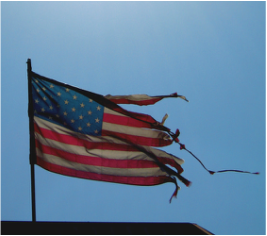 It has been four days since the election, and most of our jaws have yet to lift off the floor in what has been the most stunning election in the history of this country. Protestors have begun gathering across a nation bleeding from its heart while dragging their disgust across the blood-soaked election floor in order to sling insults, cast blame, and reopen wounds that many thought had already healed. Others are reveling in the power of the masses for which they contributed to miraculously shaking the foundation of the most powerful country in the world. “How did this happen?” and “How did we get here?” are the questions reverberating across the globe. Perhaps, we should focus on a different question instead. "What needs to happen in order to heal this country and its people?" One undeniable fact we need to acknowledge before answering any of these questions is that the people of this nation are suffering and have been for a very long time. Certainly, since the foundations of this country were laid, we have been fighting for the impossible by sacrificing our bodies, exploring our minds, and opening our hearts. Our determination for great change has, for centuries, been driven by our growing civil liberties and our patriotic poise that allows us to stand firmly on the elegant message delivered through our nation’s constitution. But, truth be told, when focus is drawn to the needs of a single group, all others are seemingly forgotten. And now, in this moment in time, an unexpected result has driven us to realize that “the forgotten” will now forever be known as “the remembered”. “The remembered”, who have waited for decades to find a single person, atypical or inexperienced as that person might be, who offers willingly to observe and listen to their collective needs, who sympathetically acknowledges their suffering, and who offers support through the promise of change. Have the protesters in the streets ceased their shouting long enough to hear these voices as well? Have they listened and understood without blame or judgement for how this formerly-forgotten group of American citizens came to their decision for which they so heavily chant against? The voices of the protesters have been heard. And now, it is time to listen to the voices of the unheard, the voices of “the remembered”. And those left shouting, will be the first ones that everyone will forget about. The people of this nation are suffering and have been for a very long time. Perhaps "the remembered" are asking us all to do the following: WE THE PEOPLE must not react. We must listen, understand, and provide support to each other through compassionate comradery. WE THE PEOPLE must NO LONGER REACT through the deliverance of actions or words driven by hatred, disgust, or a sense of utter despair. WE THE PEOPLE must RESPOND with effective action by first curbing our upset so we can listen openly to and fully comprehend the cause of suffering brought upon the citizens who live equally together among us. We must reach across the great divide that separates “Us” from “Them”. For if we do not, then this division will only spread further like a contagious disease we thought had once been cured but had only gone into remission. We must deliver a response that shows respect for the democratic process which defines how and why these States of America remain United. We must reach across the great divide that separates “Us” from “Them”. For if we do not, then this division will only spread further like a contagious disease we thought had once been cured but had only gone into remission. Regardless of whether you accept the results of this election or not, we must not give in to violent tendencies; we must not desecrate the relics of our great country of which our forefathers fought so hard to create and our ancestors fought so hard to protect; and we must not gloat for the sake of our own pleasure. For when we are defeated, we must humbly retreat, but not into the shadows. We must stand together, but not with our backs turned. We must listen to one another, but not without understanding. We must combine the “Us” with “Them”.
Have you heard about the historic event that happened during the first World War called the “Christmas Truce”? It is a beautiful story about British, French, and German soldiers declaring ceasefires and emerging from their trenches on Christmas Day in the midst of a devastating war so they could sing carols together, exchange gifts with one another, and join together in friendly and unforgotten soccer matches in the center of the battlefield before returning to their trenches to resume fighting against each other. Today, we have an opportunity to write a different ending, or coda, to this similar tune. And this coda, when sung together, should remind us that we live together on the land of the free and the home of the brave. And when sung in harmony, we can resist changing the tune of our glorious anthem to sound as though we are living on the land of despair and the home of the suffering. So, let us choose to listen to each other's voices and understand where their power comes from so that our melodies can be joined together to bind the wounds of our nation’s bleeding heart. I for one, will be singing loudly with you, with my hand over mine. Your fellow citizen, A Message from an Acupuncturist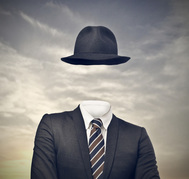 It is 9 o’clock in the morning, and you are searching the internet for a doctor who can take a look at your ankle you rolled during an evening soccer match yesterday. The pain is bearable yet still throbbing, not to mention your ankle is now the size of a tennis ball. While searching, you come across several acupuncturists not far from where you live. This reminds you of your close friend's sports injury who told you was helped with acupuncture. Recalling this, you look further and notice some of these acupuncturists appear to have Asian names and some do not. Assuming your thoughts are correct, you choose to contact an Asian practitioner because, of course, they MUST know more about what they are doing since they are Asian. Plus, their methods are probably more authentic. Right? Wrong. This common assumption is incorrect and is damaging to the profession of Oriental Medicine. It spreads even further into the many fields of medicine serving the public today leading to further discrimination of minorities, ethnicities, and genders. Since when has it become so acceptable to discriminate against a trained, licensed, and well-qualified health professional whose only interest is helping you live your life with as little suffering as possible? Dare I insert the word “racism” into this message and invoke a conversation laced with hate? This is not my intention, but it seems the injection of such is nearly unavoidable. Sadness ensues me when I hear that simply because my race is different from others, I must “learn to accept the truth” that was etched by others into the foundation of medical history. A foundation seemingly built upon “should-bes” rather than “could-bes”. Yes, I am not Asian. What’s your point? Times change. Shouldn’t people do just the same? Sure, I am not fortunate enough to be a descendant of an ancient lineage of Asian doctors famous for serving the masses, developing world-renowned healing techniques, or safeguarding the health of a royal family. What I am, however, is inspired, motivated, and interested. Inspired by the history, literature, and origins of the medicine I practice; motivated by my mentors, teachers, students, and patients; and interested in the unique life stories of people like yourself. Healers are not formed or defined by their ethnic roots let alone by similar patterns repeated in society. They are also not defined by what they see in their patients (e.g. health conditions), but rather by what they help their patients to see in themselves and how they empower them to change and make wise choices for the sake of their own health. More personally, when I search for someone to provide me with care, I refrain from making assumptions about their abilities I have yet to experience firsthand. For these abilities may be exactly what I need on my road to recovery. Of course, one's experience is an acceptable form of measure when making the choice to have someone evaluate your health. Experience, though, is achieved no differently than the height and strength of an oak tree. The seed must be planted and nurtured well enough for it to sprout and begin its journey out into the world. If only we could learn to listen to someone’s story without writing the end before it was told. Sadly, during my years of exploring the Asian medicinal and martial arts, I have been a victim of subliminal discrimination, false assumptions, and impossible expectations. I have been viewed as an outcast, thought of as “the unique one in the family”, and doubted repeatedly to the point where others give up and change their career altogether. I have been called in Chinese a "waiguoren", or literally "outside country person", which is ironic because I'm fairly sure I was born in this country where I am also licensed to practice this medicine. Wouldn't that technically make you, the name-caller, the outsider? This is beside the point of this message though, and while I endured this constant bombardment of negativity and bullying, I studied rigorously, forged my mind, and trained my body. Not so that I could defend myself, but rather so that I could learn to open my eyes and heart for the sake of every patient that enters my treatment room. And to this day, I still repeat these previously painful words in my mind so that I may remind myself they are not definitions of who I am or who I have become. For the people who have uttered them do not have permission to define my existence or evaluate my abilities with false pretense. If only we could learn to listen to someone’s story without writing the end before it was told. Your healing has nothing to do with who I am, only who you will become. So again, yes, I am not Asian. Who am I then, you ask? I am someone who cares. I am someone with hope. I am someone worth reaching out to who will care for your well-being, no matter your race, gender, appearance, or societal status. I am someone whose hope is for you to create memories laughing and playing with your children while they are still young and innocent; to remember what it was like to open your heart to your beloved mother and father before they took their last breath; to never forget the feeling of the soft breeze grazing across your skin as you stand in your hometown hundreds or thousands of miles away. True healing comes from within ourselves and will take you anywhere you wish to go. Besides, your healing has nothing to do with who I am, only who you will become.
So, I ask you. The next time you search for a care provider, will you choose based on their name, their ethnicity, their gender, or their ivy-league education, or lack thereof? Will you close the fable-filled storybook modern society has been reading to you over the years and begin writing your own story of how you see the world of healthcare and how you wish to be cared for? Have you even asked yourself HOW you wished to be cared for? It is certainly a conversation worth having with yourself. After all, you may not be Asian either. But there is certainly no one else like you. Never forget that. 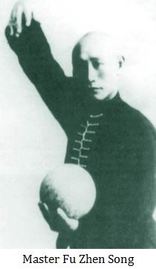 Over the past almost 20 years, I have been part of the martial arts community training and teaching people from across the world. I have judged and competed in numerous tournaments where I returned home victoriously carrying the titles of U.S. Men's National Champion, U.S. Men's Internal Grand Champion, Black Belt Champion, as well as U.S.A. All-Taijiquan Grand Champion. I was even a competing team member on the U.S. Wushu Union National Team. I have taught martial arts and its philosophy at universities across the east coast, and several years ago I opened my own Acupuncture clinic, My Metro Medicine, offering Chinese Medical Therapy, Rehab, and Chinese Martial Arts instruction in order to help heal people and pass on an art form that has changed my life and which holds a strong position in modern medicine. Reflecting back, I am amazed at my accomplishments and proud to have honored my teacher and our martial arts ancestors. My deepest learning, though, is one that will take a much longer period than a mere 20 years and is one which reminds me to not focus on the superficial level of my accomplishments I have just listed. Nor is it connected with the speed of my punches, the power of my kicks, or the number of black belt degrees I have been awarded over the years. This learning involves a study that reaches the depths of the individual which one could argue as being the soul of martial arts. A soul that only comes alive through the awakening of the martial artist. It is the study of "Wu De", or Martial Morality. Martial Morality, or Martial Ethics, is a genuine lesson in altruism that commands a perfect blend of Daoist and Confucianist standards. The art of Martial Morality consists of two complimentary areas of practice; Morality of Deed and Morality of Mind. An understanding of the Morality of Deed is defined by one's ability to demonstrate the acts of Humility, Respect, Righteousness, Trust, and Loyalty while one's understanding of the Morality of Mind is defined by one's ability to embody and exhibit the Will, Endurance, Perseverance, Patience, and Courage necessary no matter the hardship. The virtue and honor found in a living illustration of this practice and way of being are truly a rare find. Sadly, over the years and even now, I have witnessed countless disrespectful students, abusive teachers, and ignorant martial artists who have embellished in their own grandeur and who are only concerned with the reputation they have built and become attached to. Let it be known that reputation is nothing more than a tale of one person, within which exists the potential of transformation into an anecdote of distorted outcomes; a tale that could easily lack the essence of Martial Morality and be deemed as worthy and deserving of respect by the naive and untrained. In martial arts, we have a saying, "Wu Lin Yi Jia"; translated literally as the "martial forest is one family". When you were a newborn baby, you were brought into the world and raised by a mother and/or father. In the martial arts world, your teacher is your father or mother who nurtures you, starting as a "newborn" martial artist, just as your own parent would, and your classmates are your older or younger brothers and sisters. This important and supportive group of people are considered to be your immediate Gong Fu (Kung Fu) Family. Even the teachers and students of other schools are considered to be a part of your (distant) Gong Fu Family. Everyone in your "martial forest" deserves to be treated with the same respect and honor of what could be called the tenets of Martial Morality. Reputation is nothing more than a tale of one person, within which exists the potential of transformation into an anecdote of distorted outcomes. So, if martial arts mastery has little to do with physical practice and more to do with mental and spiritual practice, then why perform the movements or exercises of martial arts at all? This is because by testing the limits of your body, you learn to control the limits of your mind. In turn, the limits of your spirit are revealed creating a three dimensional harmony of all that we are capable of as human beings. In martial arts, one must perform the physical training to ensure the health and vitality of one's body. Also not to be forgotten is the practice and experimentation of breathing techniques as well as the training of one's ability to manifest and move the body's energy (Qi). Since the early developmental years of martial arts and Qigong, it was known that the first stage of training involved the regulation of the body followed by the breath, the emotional mind (Xin), the Qi, and ending with the spirit. If one does not complete each of these stages successfully, the skill of the person is considered "empty". Furthermore, if the practices of Martial Morality are not exhibited by the person even after mastering these five levels of regulation, this would also be considered "empty". 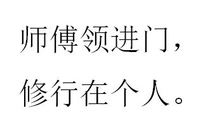 So, because of my accomplishments, am I a Master of Martial Arts? I humbly announce that I am not. In the end, this is not a question that any martial artist can answer on their own. It is determined by their own actions as well as their inactions. In my own respect, even though I have achieved much success in martial arts, I am always reminded by my martial arts family that I have only just peered through the surface into the uncharted depths of an art I hope to preserve. To close, I will leave you with one final martial arts teaching. "Shi Fu Ling Jin Men, Xiu Xing Zai Ge Ren". Translated into English, this means "the teacher opens the door, it is up to the student to walk through it." So, the door to mastery has been opened. Now, will you cross the threshold? Peacefully, 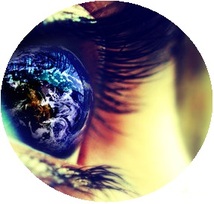 Recently, I had the honor of participating in a Tai Chi performance at the Washington National Cathedral's event "Seeing Deeper" with my teacher, Master Nick Gracenin, and other masters across the east coast. The event was created to offer learning opportunities to the public designed to enhance one's awareness of the body, mind, and spirit. The magnificent space of the cathedral was cleared entirely of chairs and benches in order to mimic the vastness of medieval cathedrals, served traditionally as places of gathering and community. The "Seeing Deeper" event also served as just this, a place of gathering, with nearly 100 people performing together the relaxing arts of Tai Chi and Qigong for nearly two hours. During our practice, my teacher inserted elements of these art forms that trace back thousands of years into their philosophy which was used as the foundation of the healing arts of China, including Acupuncture and Chinese Medicine. These elements included the essence of not only health practices and Tai Chi application but also important methods used to enhance one's quality of life. Traditionally and modernly, we know these elements as Yin and Yang as well as the Five Elements. Unfortunately though, many sources of traditional teachings were lost during the Cultural Revolution that took place in China during the 20th century. Although some of this was safeguarded, many people to this day are constantly excavating and learning through self practice the true essence and meaning of the Yin and Yang, the Five Elements, and simply how to live a life of peacefulness and understanding. The combination of the five human senses is the foundation of love. So, what does it mean to be "Seeing Deeper" anyway? Does the act of "seeing" in fact require the use of the human eye? And does "deeper" refer to the space or ground beneath us? The human body is known to have (at least) five senses: sight, hearing, smell, taste, and touch. When you remove one of these senses, e.g. close your eyes, does it make it easier or more challenging to "see"? The question is only relative to the situation in which you are attempting to "see". If you were walking ten miles across an unknown landscape, this would make the task challenging and perhaps more dangerous, but not entirely impossible. If you were simply trying to experience the texture of a piece of fruit, removing your ability to see might in fact make it easier. At the same time, would your other four senses be reduced or heightened? If your mind is no longer focusing on the use of your eyes, then your intention required would be sent directly to the senses you are still capable of utilizing allowing for them to be heightened. In the example of the piece of fruit, your sense of smell would be heightened as you would know exactly what piece of fruit it would be without even touching it, you could tap it to determine its density, you could examine its texture by touching it, and lastly, you could experience its deliciousness with your sense of taste. The art of seeing deeper requires not the skillful ability that is developed over time, but rather the innate ability that reveals itself after years of shedding away the layers of human suffering. So again, does the act of "seeing" truly require the use of the human eye? It depends on the context in which you are applying the act of "seeing". On a deeper level, when we wish to see within ourselves to understand our purpose as well as the meaning of life, we must first make a connection with our surroundings, both material and immaterial. Then we must use equally and non-judgmentally our five senses in order to experience what life has to offer. The combination of the five human senses is, in fact, the foundation of love.
The art of seeing deeper requires not the skillful ability that is developed over time, but rather the innate ability that reveals itself after years of shedding away the layers of human suffering. This said, we can only discover what is within ourselves by relating it to what is without ourselves (the outside world). Looking within is only possible by looking without. In the year 2015, practice enhancing your ability to "see deeper" by using your senses in these ways: Truly experience the textures of the food you eat. Envelop yourself in the smells of a gorgeous flower garden. Naturally move your body with the sounds (of music) that surround you. Take in visually the artistic palette of colors the world has to offer. Sensually feel the skin of the person you love and adore the most. Peacefully, 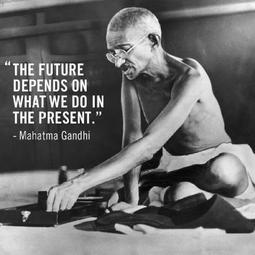 In this very moment, take a look at where you are. Take a look at what you are doing. Take a look at who is around you. Take a look at the thoughts going through your mind. Be aware of everything in your external AND your internal surroundings. Now take a deep breath in. As you exhale, breathe out the words Thank you and imagine sending these words as a kind, heart-felt message to everything in your external surroundings. Now do this two more times; once for your internal surroundings, thanking yourself for your breath, your heart beat, your abilities of sight, hearing, taste, smell, and touch, then once more for everything inside and outside of you. ~Now smile!~ You've just completed an exercise in mindfulness and being present. Now... What does it mean to be present? What does it mean to be mindful? What does it mean to just BE? These are questions that we typically do not focus on from day to day. So, even better than making an attempt to provide an answer of some sort, I invite you to experience what it means to you to be present, be mindful, and just BE. Here are a few tips on how to get started: Step 1: Atten-Hut! Sit on the last half or 2/3 of your chair so that you back does not touch the support behind you. Place both feet flat on the floor and directly under your knees. Straighten your back from the bottom of your tailbone to the crown of your head. Finally, rest your hands on your lower abdomen, one on top of the other. Step 2: Breathe. Slowly and evenly take a deep breath in and push your belly into your hands and notice your abdomen expanding in all directions. Hold this breath for a brief second and then continue by exhaling out at the same speed you inhaled. Notice your hands and your abdomen returning to their original positions. Step 3: Close Your Eyes. Let your eyes relax and slightly lower about 20-30 degrees to look at the ground in front of you. Then close your eyes and begin to focus only on your breath and the natural movement of your abdomen. After you complete a few breaths, you should begin to feel more relaxed. At this point, you should begin to let your breath fill your whole body, almost as if you are breathing with every inch of yourself, not just your lungs. Bonus Step: Take a Look Around. Once you feel confident with the first three steps, begin focusing on the bottom of your feet. Feel every inch of your feet relax and spread out on the floor as you continue to feel your breath move throughout your entire body, especially the bottom of your feet. This will help you to feel more grounded and stable in the present moment so that you do not fly away into every thought that enters your mind and attempts to overtake you. "Always say 'yes' to the present moment... Surrender to what is. Say 'yes' to life - and see how life starts suddenly working for you rather than against you." To understand what it means to be present, mindful, and just BE, you must experience it first. Practice these steps every day for at least five to ten minutes, and then notice what you feel. Has there been a change after one week? How about even one day? Being present, whether you are a beginner at it or make it look effortless, we must all remember it is not just another exercise to be added to your daily list of things to do. Begin by making it a routine, something you won't forget, and something that is important to you. Then, and only then, will you be closer to remembering what it was like to just be here and now. After all, if you cannot allow yourself to be present, what makes you think everything else around you will be? If you need more guidance on being present or mindful, please contact us at (202) 505-2805 for a Mindfulness Jump-Start Session to help you on your journey towards a more relaxed and present you. Peacefully, Enjoy this Video from "60 Minutes" on Mindfulness with Anderson Cooper & Jon Kabat-Zinn
|
Posted here are...inspirational ideas on healthy living through eastern medicine, optimism, and possibility through empowerment. Archives
March 2020
Categories
All
|
HOURS & LocationMondays-Thursdays 5:30-6:30pm (Tai Chi & Qigong only)
Fridays 5:00-6:00pm (Tai Chi & Qigong only) Saturdays 1:00-6:00pm (Acupuncture only) |
CONTACT Us |

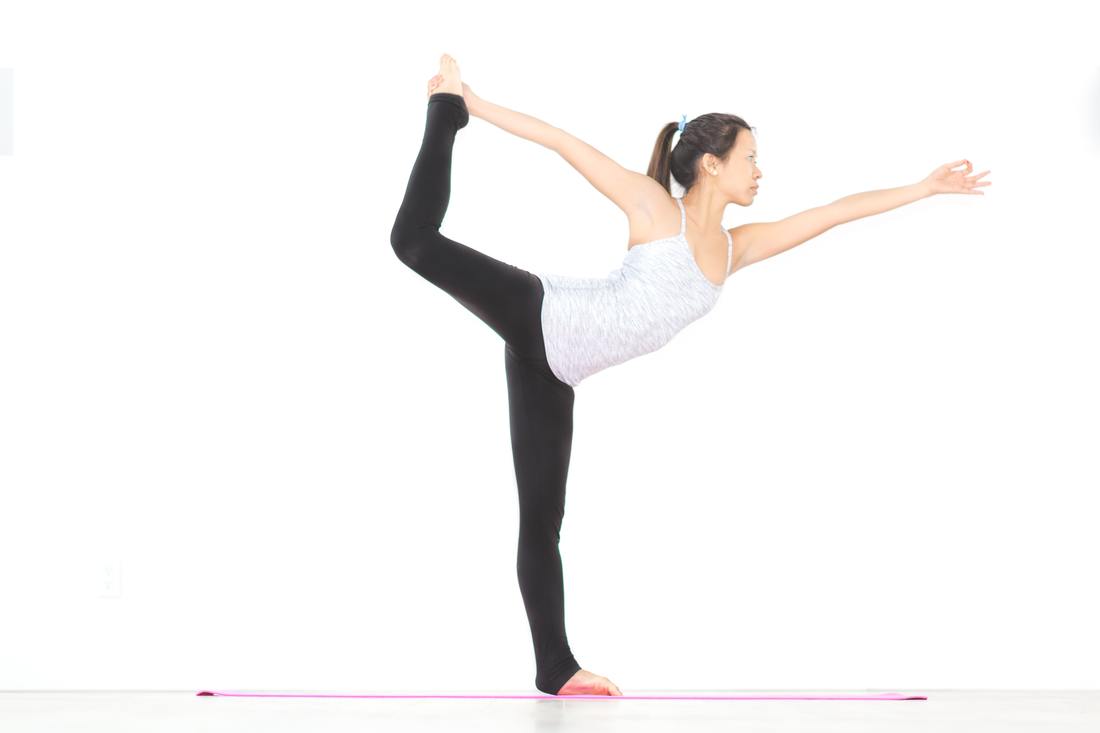
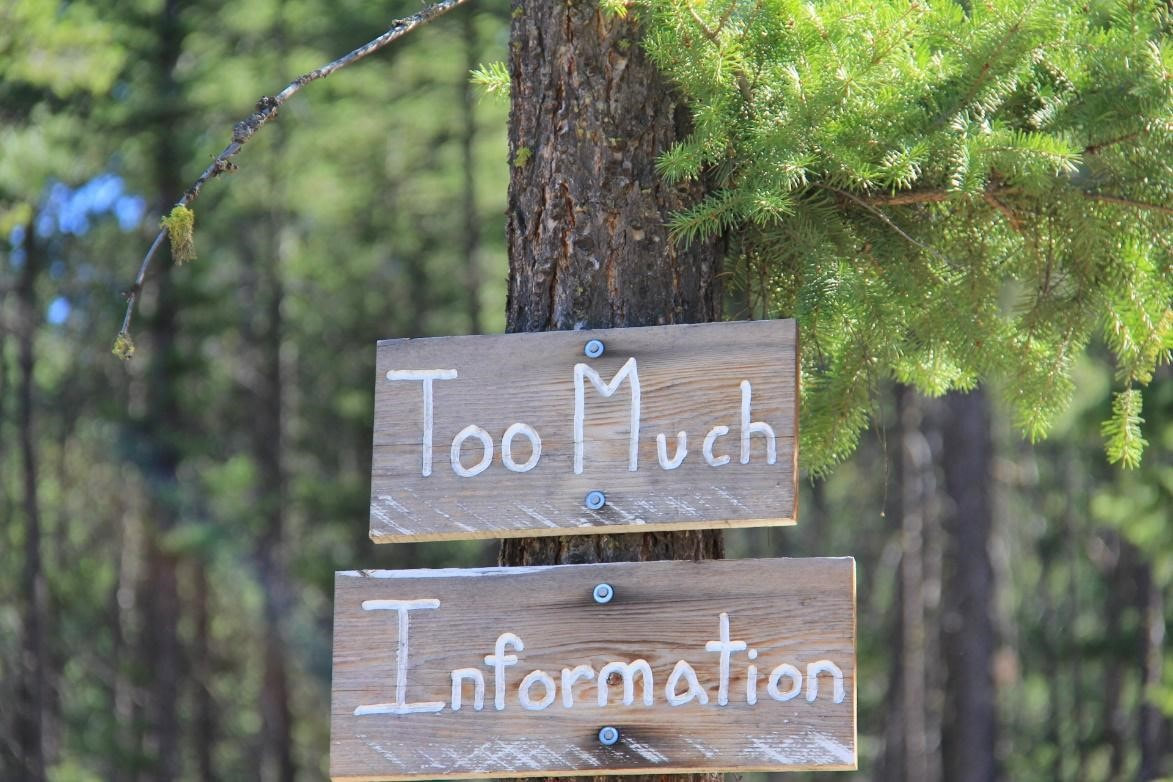
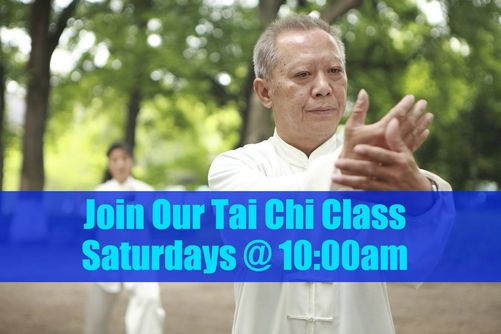



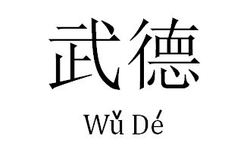
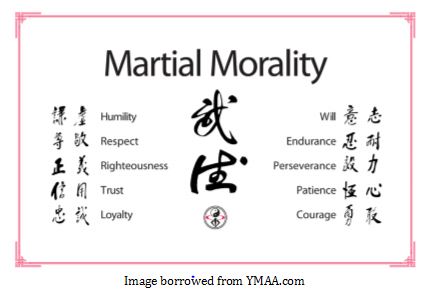



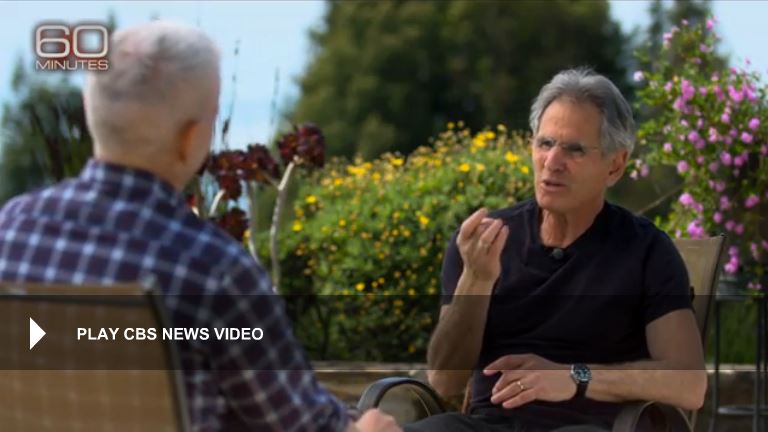
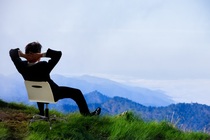

 RSS Feed
RSS Feed
